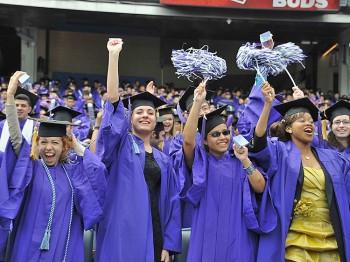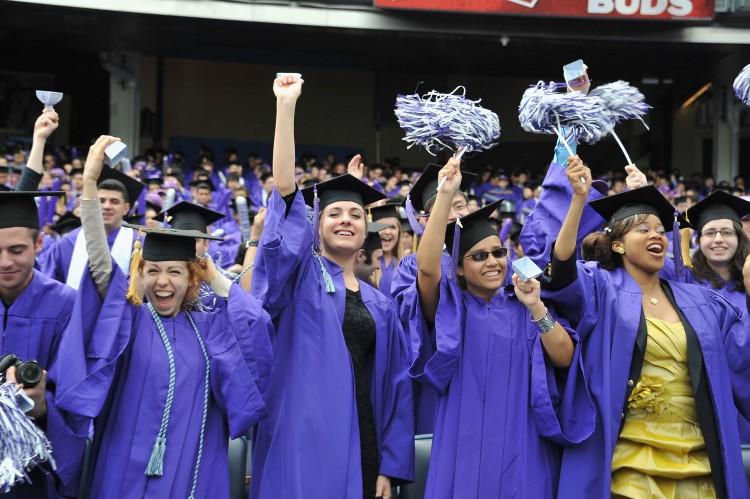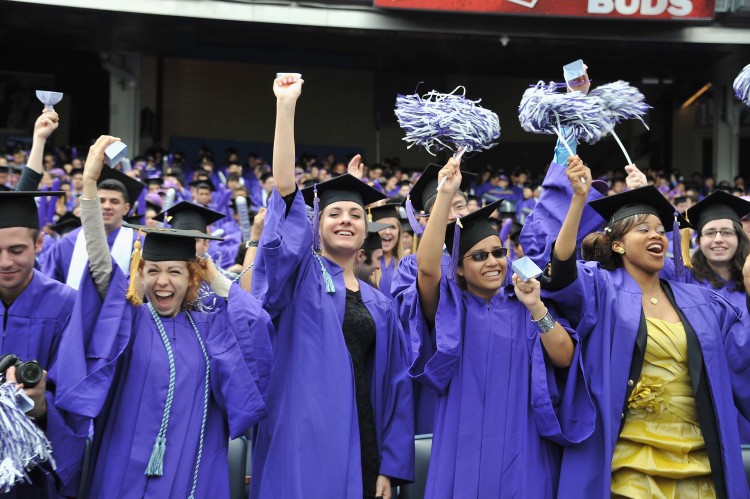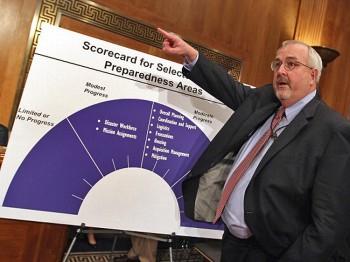College Degrees Still Worth the Investment
Though the May Department of Labor jobs report showed an anemic 54,000 new jobs and an unemployment rate now 9.1 percent, the prospect for new college graduates about to enter the work force may be better than it was over the last few years.

Graduating students at the 2011 New York University commencement at Yankee Stadium on May 18. Slaven Vlasic/Getty Images
|Updated:




